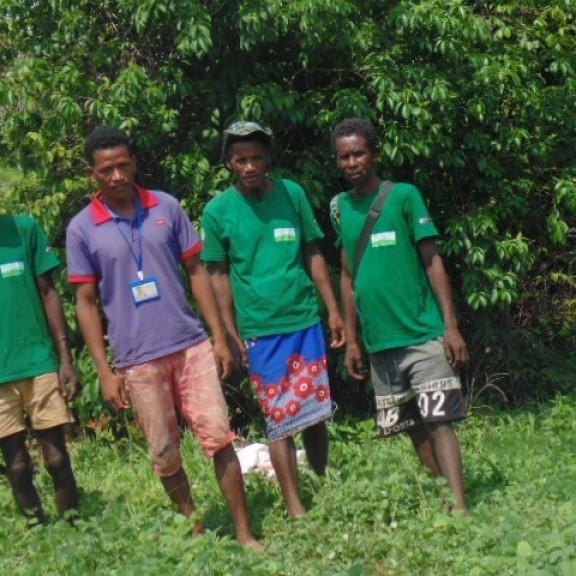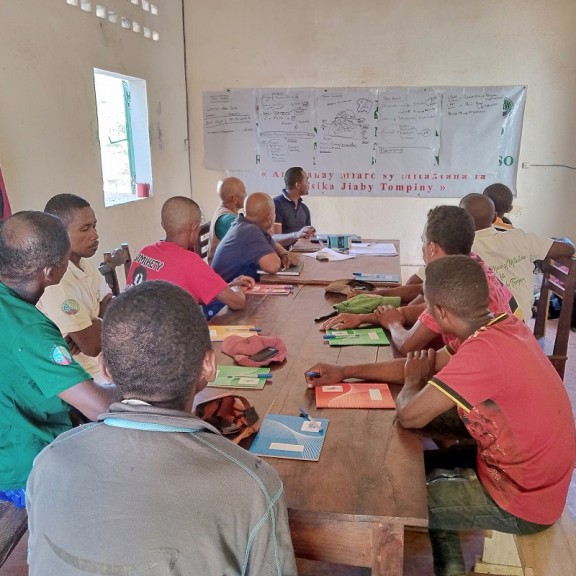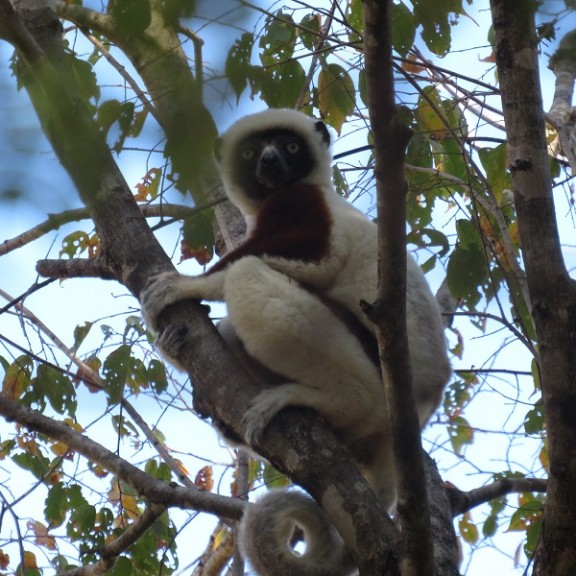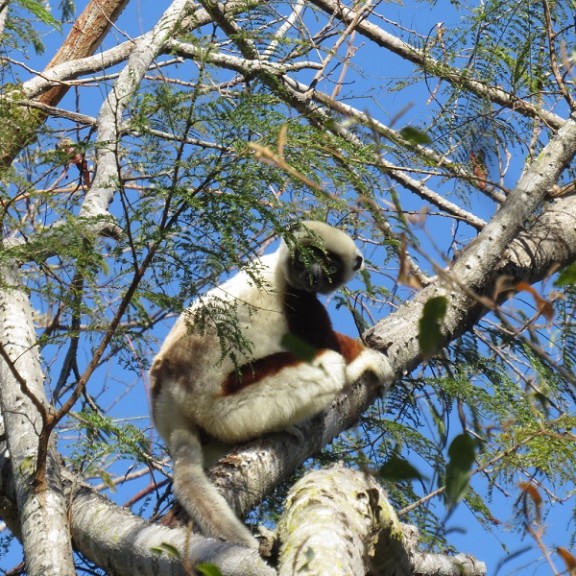

Bongolava Forest Corridor
Together against fire - community firefighting system in the Bongolava forest corridor
The Bongolava Forest Corridor was established as a protected area in Madagascar in 2006. The area in the north-west of the island is a 606km2 mosaic of grass savannahs, shallow lakes and dry deciduous forests, considered one of the most endangered ecosystems in Madagascar. As a result of the coup in 2009, important financial resources were lost and Bongolava was left without active management for a period of about five years. The simultaneously high food prices led to these forests being cleared on a large scale as an "orphaned protected area" for food production.
Today, the remaining forest fragments in Bongolava are home to several lemur species, including the endangered Coquerel's sifaka (Propithecus coquereli) and the critically endangered Otto's sportive lemur (Lepilemur otto). The greatest threat continues to be the slash-and-burn clearing of forest areas for the extraction of arable land and the production of charcoal. In addition to man-made fires, there are also devastating forest fires of natural origin.
Fikambanana Bongolava Maitso (FBM), the local NGO that has been managing the protected area since 2015, protects the remaining forests from the risk of fire. With the financial support of the Foundation for Species Conservation, 15 kilometres of firewalls are being set up and a monitoring system established. In addition to 12 active rangers, 120 local residents are being trained and included in the regular fire patrols. These measures will ensure long-term protection of the forests in co-operation with the local population.
Project Fact Sheet
|
Species
|
Coquerel's Sifaka (Propithecus coquereli) (CR); Otto's Sportive Lemur(Lepilemur otto) (EN)
|
|
Threats
|
Habitat destruction through conversion to arable land and deforestation, natural forest fires
|
|
Project aim
|
Construction of firebreaks and fire patrols to contain the destruction caused by forest fires
|
|
|
|
 |
|




